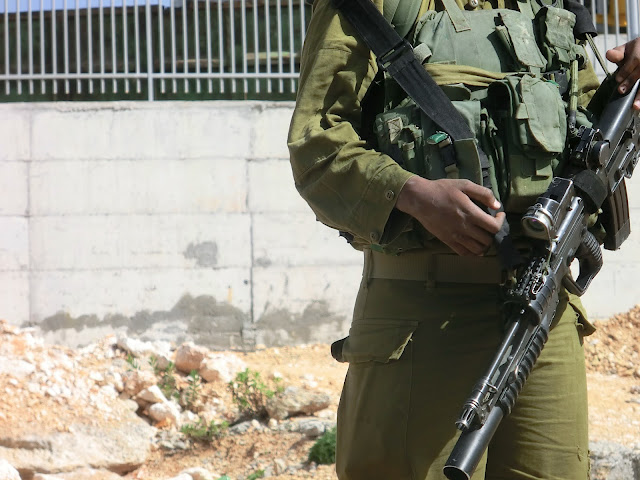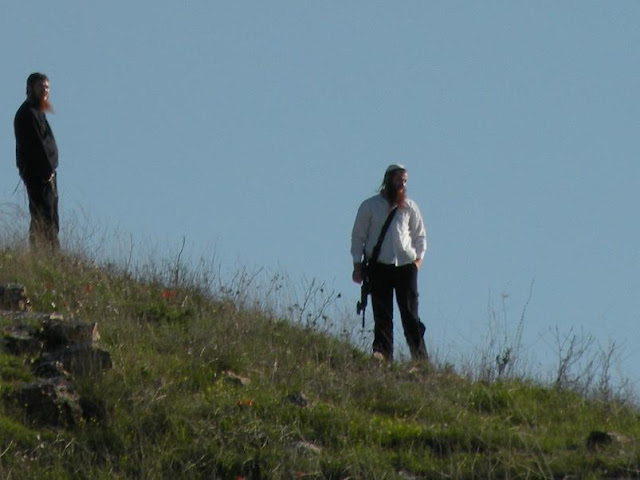Tag: Nablus
-
Bruqin avoids arrests: Planting hope for Khader Adnan
by Jonas Weber 13 February 2012 | International Solidarity Movement, West Bank Villagers of Bruqin and supporters went out today to plant trees in the field by the factory. While trees were planted alongside pictures of Khader Adnan, two young men sneaked over to the fence of the factory and put up Palestinian flags. In…
-
Asira al Qibliiya: “The time for settler attacks is now”
by Amal 11 February 2012 | International Solidarity Movement, West Bank As warm days sneak into this cold month of February, illegal settlers begin their season of attacks early. Although there is no “off season” for settler attacks, the number of these criminal acts increases in the spring and summer. The residents of Asira al…
-
Burin: Yitzhar settlers leave the mark of violence
by Veronica 10 February 2012 | International Solidarity Movement, West Bank On Thursday 9 February at about 10pm, a house in the village of Burin near Nablus was attacked by settlers. Approximately 50 armed settlers approached a house near the edge of the village and threw stones and rocks at the inhabitants, shouting at them…


